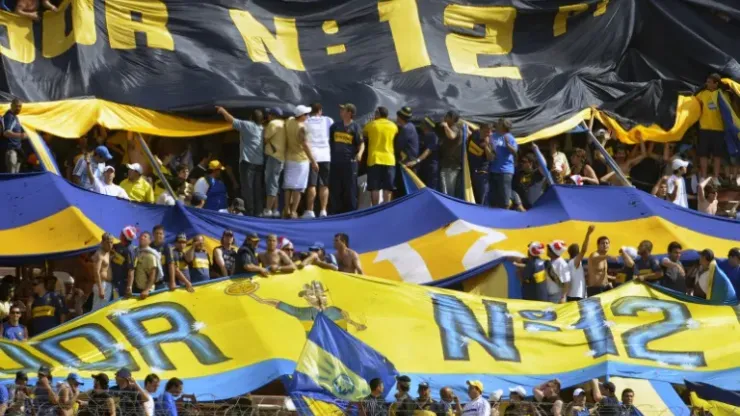Buenos Aires (AFP) – It is ranked as the top match to see before you die: the ferocious tie between Boca Juniors and River Plate, who meet on Sunday in the Argentine league.
In a country where football is power, and even a matter of life and death, the Buenos Aires derby is the ultimate battle.
British football magazine Four Four Two this year ranked it as the best “clasico” in the world, above Barcelona-Real Madrid.
It is the mother of all derbies — and the rival club’s mothers are among the first sacred entities to be profaned once the fans start chanting.
“When they’re not winning, the stands are empty,” sing the Boca faithful of their rivals, dubbed the “Millionaires.”
“Come on you millionaires and win, to make the dung-shovelers cry,” retort the River crowd, using their rivals’ historical nickname.
“This country lives and breathes football. The passion for it is astonishing and charming,” said Ariel Scher, a specialist in sport and politics at the Deportea sports journalism school.
“It is in the derbies that the sense of identifying with the team is strongest.”
– Away fans banned –
Sunday’s match sees former Manchester City striker Carlos Tevez, 32, lead his boyhood club Boca away against River and their veteran midfielder Andres D’Alessandro, 35.
“The clasico is the most beautiful experience for a player,” Tevez has said.
“It is one of the few matches where I find it difficult to switch my frame of mind from being a fan to being a player.”
The two teams’ former stars include Diego Maradona of Boca and the late Alfredo Di Stefano who played for River Plate and later Real Madrid.
The 62,500 seats in River’s Monumental stadium in the north of the city will be a sea of red and white, with not a yellow and blue Boca short in sight.
Away supporters have been banned from most Argentine league matches since 2013, when a Lanus fan was killed at a game against Estudiantes.
So Boca fans will have to watch it on television — among them Argentina’s current president, the millionaire businessman Mauricio Macri, who was president of Boca Juniors from 1995 to 2007.
– ‘Chickens’ vs. ‘Dung-shovelers’ –
River, generally seen as playing a more attractive game, have more Argentina league titles — 35 to Boca’s 25.
But Boca, considered the more gutsy side, have won more derbies against River — 268 to their rivals’ 252.
Both clubs were born over a century ago in the Italian immigrant district of Boca, in the south of the capital near a tributary of the Rio de la Plata.
River Plate later moved away north to a new stadium in the upmarket Nunez neighborhood, where they opened the Monumental stadium in 1938.
Boca stayed in the old neighborhood at their stadium, known as “la Bombonera,” or “the candy box.”
Nowadays neither team is particularly richer than the other, but the stereotype persists, notably in their nicknames.
A flood in the working class Boca district was thought to have given the local fans their own moniker: bosteros, or “dung-shovelers.”
River Plate have been dubbed the “millionaires” ever since they got rich and signed an expensive player in the 1930s.
Their other nickname “chickens” (cowards) comes from an infamous defeat in 1966, when River Plate gave away a 2-0 lead to lose 4-2 to Uruguayan side Penarol.
“Dung-shovelers” and “chickens” are among the lighter insults exchanged by fans in their frequently homophobic, racist and incendiary chants that sometimes extend to death threats.
Referees have been known to stop games due to such chants and River Plate’s own president Rodolfo D’Onofrio has called for fans to be expelled for them.
“Some try to make light of it by saying it is all a game,” said Scher. “But where does it all end?”
200+ Channels With Sports & News
- Starting price: $33/mo. for fubo Latino Package
- Watch Premier League, Women’s World Cup, Euro 2024 & Gold Cup
The New Home of MLS
- Price: $14.99/mo. for MLS Season Pass
- Watch every MLS game including playoffs & Leagues Cup
Many Sports & ESPN Originals
- Price: $10.99/mo. (or get ESPN+, Hulu & Disney+ for $14.99/mo.)
- Features Bundesliga, LaLiga, Championship, & FA Cup
2,000+ soccer games per year
- Price: $5.99/mo
- Features Champions League, Serie A, Europa League & Brasileirāo
175 Premier League Games & PL TV
- Starting price: $5.99/mo. for Peacock Premium
- Watch 175 exclusive EPL games per season






